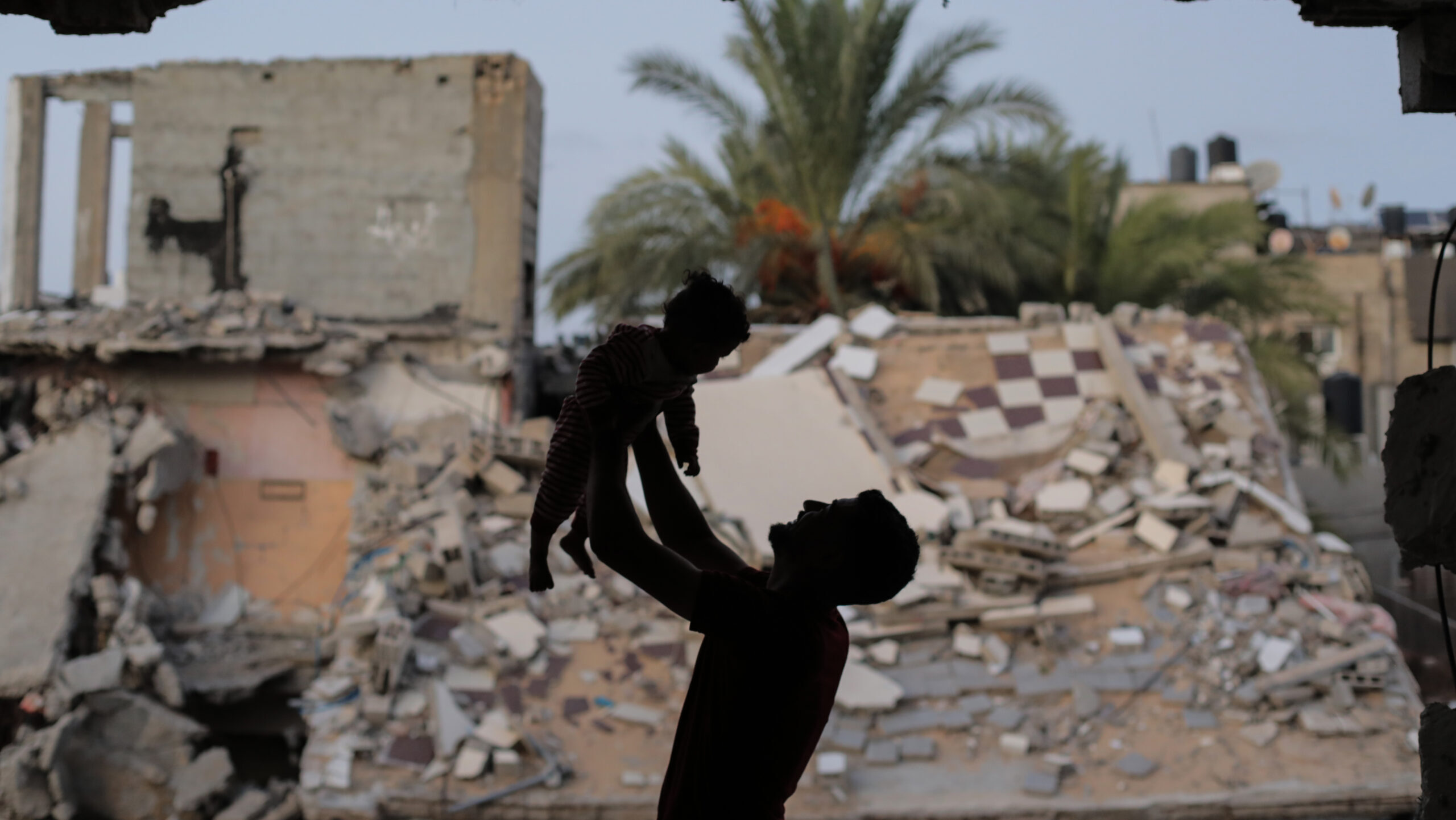Turning Gaza Into a Secondary Battlefield Is No Solution
A year after the October 7 attack and ensuing war, it’s time to seek a civilized resolution to the conflict, if not for politicians, then for the bereaved families and broken hearts on both sides
For the first time since October 7, 2023, Israel announced that the Gaza Strip had become a secondary battlefield, turning its focus on the Lebanese front. Just a second! Don’t jump too fast to promising conclusions. This is not a decision that ends the war in Gaza, sends the Israeli captives home, and gives a chance for the displaced Palestinians to return to their homes, bury their dead, and spend a few moments of solitude on their graves, thinking of what was and what will be.
This is a decision that implies Israel’s intention to spend a few bad years in Gaza, restoring its status as an occupying power between 1967 and the 2005 unilateral disengagement. However, it didn’t fully disengage from the Gaza Strip that year. It continued its siege and kept the overriding security control for itself.
The meaning of this decision is moving the Israeli army in the Gaza Strip from the proactive offensive role it has maintained throughout the past year of the war into a somewhat different mission of aborting potential attacks on Israeli troops or responding to attacks that might occur. This in itself is a recipe for an extended occupation that would involve non-stop skirmishes between the occupying army and resistance groups of various factional affiliations. I bet that wasn’t in Sharon’s strategy when he decided to disengage.
This holiday season, give to:
Truth and understanding
The Media Line's intrepid correspondents are in Israel, Gaza, Lebanon, Syria and Pakistan providing first-person reporting.
They all said they cover it.
We see it.
We report with just one agenda: the truth.


Pushing the time counterclockwise isn’t helpful to either party of the conflict. The Israelis would enjoy any peace or calm along their southern border even if their army established inside the Gaza Strip a Lebanon-like security zone along the southern border with Gaza. The Palestinians in Gaza, no matter what sort of interim arrangement is imposed on them, will continue to look at Israel as the occupying power that has been denying them their natural, legitimate right to self-determination. Whoever thought that military suppression could shape a peaceful future was wrong, incredibly wrong. The death toll on both the Palestinian and Israeli sides over the past year is irrefutable evidence that only a political solution is the catalyst that can move our Middle East into a different world, a world of peaceful coexistence between Palestinians and Israelis, each in their independent state side by side and a world of regular ties between Israel and the 57 Arab and Islamic countries that haven’t dumped the Arab Peace Initiative despite all that happened since it was launched in Beirut in March 2002 until today.
The decision to extend the Israeli army’s stay in the Gaza Strip and increase the pressure on the Lebanese people and Hezbollah does not guarantee that Netanyahu’s utmost victory is attainable. On the contrary, a bitterly-wounded Hezbollah that is loaded with anger and resentment towards Israel after it assassinated the first, second, and perhaps the third level of its command’s hierarchy is driven by this urge to revenge and fight the Israeli army in South Lebanon far more ruthlessly than ever before. Revenge is a trigger of the unexpected. Even Israel fell into its trap immediately after October 7, 2023. The behavior of the Israeli army and the indiscriminate airstrikes on Palestinian civilians could never be excused by the horrible events of that Saturday, October 7.
Hearing what Gazans say about their condition and the way Hamas had manipulated their national pride up to the level of dragging them into a war they never expected or wanted, one can only pity those 2.2 million Palestinians who have faced challenges in the past 12 months much more than they faced in 74 years, i.e., since Israel’s creation.
While the displaced Israelis in the south or the north live in hotels paid for by their government, the displaced Palestinians are dispersed all over the Gaza Strip, except for its northern part. Those a bit lucky live in tents. Others found shelter in shattered buildings or a semi-destroyed ceiling. What made their life worse was the phenomenon of the looters who hijack convoys of trucks loaded with international humanitarian aid only to sell their content at skyrocketing prices. The Israeli army also didn’t spare those displaced Palestinians the agony of moving from one place to the other. Every time they were told a new place was safer to relocate to, the Israeli Air Force would target them, bomb their tents, set them on fire, and, sometimes, kill people in the dozens. I’m not into comparing tragedies on both sides. Every family has its grief. Nothing can dry out the tears of a crying mother or a bereaved wife. Nothing will ever bring a deceased father, brother, son, husband, sister, or whatever back. Both the Palestinian and Israeli peoples need to hold on, take a breath, and think of how far they can go in this bloody and destructive showdown. Neither side will ever win, and for sure, they both lose. Violence begets violence. Killing produces vengeance. And vengeance leads both sides into another round of violence followed by one more and one more and … endlessly.
Is this what we both aspire to?
Every war in the Middle East ended with something positive. The 1973 October War produced the first Camp David Peace Treaty between Egypt and Israel in 1979. The Lebanon War of 1982 created the dynamics of international support for the Palestinian right to independent statehood. It triggered the strategic change in the PLO’s program as it accepted the notion of the two-state solution in the historic speech known as the Declaration of Independence, which the late Palestinian leader Yasser Arafat read out in Algiers in November 1988. The first Palestinian intifada led to the Oslo Process, and the failure of the Camp David talks in 2000 led to the second Palestinian Intifada, which led afterward to the unilateral withdrawal from the Gaza Strip and a small part of the northern West Bank. All parties to the conflict and the international community have a joint duty to get out of the current war in Gaza and Lebanon into a political solution that minimizes the chances of more conflicts erupting again.


